At the beginning of this digital age, we’ve had to embrace many changes that have suddenly been thrust upon us. Everything, from the integration of AI to the addition of digital locks, is changing how we go about our everyday lives. Some perceive these changes to be good, while others have a completely different opinion. You can be the judge as we compare digital vs. traditional locks in this blog.
This topic of discussion is becoming more and more apparent as the days go by, and you may be asking yourself the same question. Should you conform to the ever-evolving landscape of the world for convenience? Or will you stick to the tried and true ways of the past with a traditional lock?
Advantages of Digital Locks
Digital locks have gained popularity in recent years due to their numerous advantages. One of the key benefits is convenience. Unlike traditional locks that require physical keys, digital locks allow users to access their properties using codes or biometric features such as fingerprints. This eliminates the need to carry around keys, minimizing the risk of losing or misplacing them. Additionally, digital locks offer the flexibility of creating multiple unique access codes, enabling different individuals to enter the premises without the need for additional keys.
Another advantage of digital locks is enhanced security. These locks often come equipped with advanced security features, such as alarm systems and tamper-proof mechanisms. In the event of a break-in attempt, the lock can trigger an alarm, alerting homeowners or security personnel. Moreover, digital locks are difficult to pick or bypass, making them more resistant to physical attacks. This can provide homeowners with peace of mind, knowing that their property is well protected.
Digital locks offer several advantages over traditional locks. They provide convenience by eliminating the need for physical keys and allowing for flexible access control. Moreover, their advanced security features make them more robust and reliable, offering enhanced protection for properties. However, it is important to consider the specific needs and requirements of each situation before making a decision, as digital locks may not be suitable for every property or individual.
Advantages of Traditional Locks
Traditional locks have been used for centuries to secure homes, businesses, and other properties. One of the key advantages of traditional locks is their simplicity. Unlike digital locks that require complex electronic components and programming, traditional locks operate using basic mechanical mechanisms. This simplicity makes traditional locks easy to understand and maintain, as they do not rely on electricity or batteries.
Additionally, traditional locks do not require any specialized knowledge or training to operate, making them accessible to people of all ages and backgrounds. Another advantage of traditional locks is their reliability. With no electronic components to malfunction or software to update, traditional locks are known for their durability.
They are less susceptible to power outages or technical glitches, ensuring consistent access to the secured premises. In the event of a mechanical failure, traditional locks can often be repaired quickly by a locksmith, eliminating the need for expensive replacements. Overall, the simplicity and reliability of traditional locks contribute to their continued popularity and trustworthiness in securing valuables.
Disadvantages of Digital Locks
Digital locks have gained popularity in recent years due to their convenience and enhanced security features. However, like any technology, it also comes with its fair share of disadvantages. One drawback of digital locks is their vulnerability to hacking and cyber-attacks. As these locks are connected to the internet or a wireless network, they can be targeted by skilled hackers who can exploit vulnerabilities in the system. This raises concerns about the privacy and safety of one’s home or office, as unauthorized access to the digital lock could result in burglary or other security breaches.
Another disadvantage of digital locks is their reliance on power sources. Unlike traditional locks, which operate solely through mechanical means, digital locks require electricity to function. In the event of a power outage or a malfunction in the lock’s battery, one may find themselves locked out of their property or unable to secure it properly. This dependence on power can be particularly problematic in emergencies or if the lock’s backup power system fails. Additionally, the need for regular battery replacements or recharging can be inconvenient and add to the overall maintenance cost of digital locks.
Disadvantages of Traditional Locks
When it comes to traditional locks, there are a few disadvantages that are worth considering. Firstly, one of the main drawbacks is the ease at which they can be picked or manipulated. Skilled burglars can often bypass traditional locks with relative ease, especially if they have the necessary tools or knowledge. This raises concerns about the safety and security of our homes and possessions.
Additionally, traditional locks can be quite inconvenient, especially if you tend to misplace or forget your keys. Having to carry around a bulky keychain or constantly worry about losing your keys can be a hassle. Furthermore, if you ever find yourself locked out of your own home, it can be quite a predicament, requiring you to either call a locksmith or find alternative ways to enter. These factors can add unnecessary stress and inconvenience to your daily life.

Digital vs. Traditional Locks: Which Is For You?
As you can see, choosing between digital vs. traditional locks is more complicated than it may initially seem. Whatever decision you make, be sure you give Mobile Locksmith a call so we can install your new locks to ensure your home remains secure. Our expert team is always ready to assist!


